(RNS) — They preached sermons, wrote books and served as spiritual role models.
From Christian evangelists to atheism advocates to towering figures in the fight for racial justice, in 2021 we lost influencers who helped us understand, adopt or question religion.
Some notable figures who died this year were not generally known for their faith but nevertheless were privately religious, from Colin Powell, who was described at his funeral as someone who “loved the high hymns” of the Episcopal Church, to Rush Limbaugh, who appealed to Christian conservatives on his popular radio show.
Others worked as journalists of religion for newspapers and television. Rachel Zoll, The Associated Press’ longtime religion reporter, died in May after a career of breaking news, in-depth stories and a feature about a Bible study class called “Finding the Way Back to Mayberry.” Veteran broadcast journalist Bob Abernethy, who also died in May, moved from covering the fledging U.S. space program and the Soviet Union’s collapse to founding the program “Religion & Ethics NewsWeekly” that aired on PBS for almost 20 years.
Here are other prominent figures in the world of religion who died in 2021:
Walter Plywaski
The Polish immigrant who refused to say “so help me God” as part of his oath as a new U.S. citizen advanced religious freedom for atheists wanting to become Americans.
Plywaski died Jan. 28 at 91.
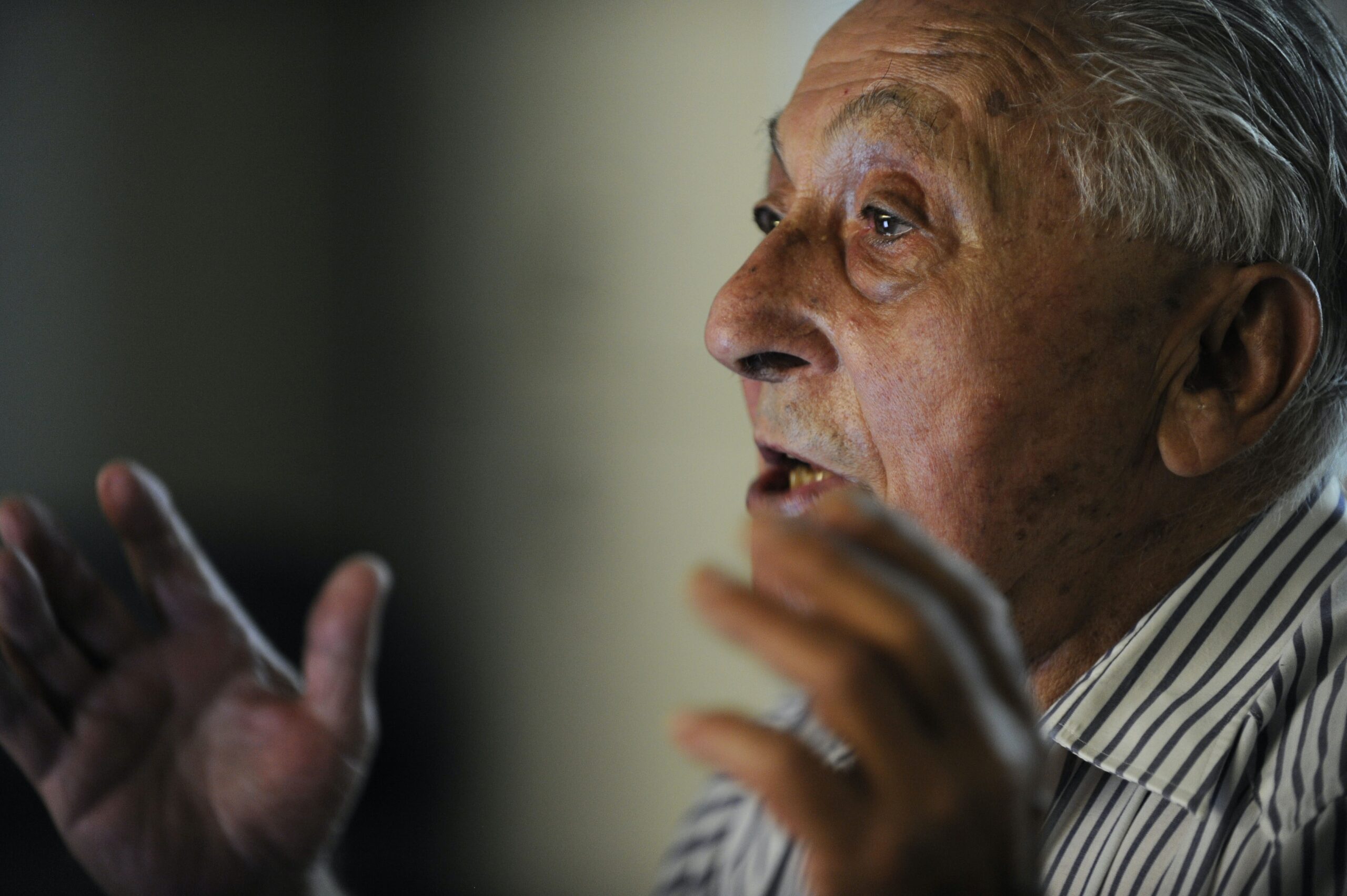
Walter Plywaski fought for atheists to be given citizenship rights. (Helen H. Richardson/The Denver Post via Getty Images)
During World War II, he spent five years in Nazi concentration camps, The Conversation reported. After the liberation of Dachau, a camp in southern Germany, he was employed as an interpreter before he immigrated to the U.S. in 1947.
As a result of his court battle over not reciting the traditional oath, the U.S. Citizenship and Immigration Services policy manual now includes oath modifications.
A member of Boulder Atheists, he also was known for educating people about the Holocaust and for speaking out against hate prior to the 2020 election.
RELATED: Faith leaders and religion influencers who died in 2020
Frederick K.C. Price
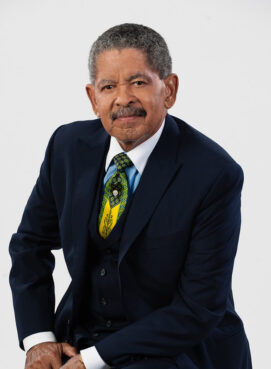
The Rev. Frederick K.C. “Fred” Price. Photo via Crenshaw Christian Center
The prominent Los Angeles pastor built one of the largest church buildings in the nation.
Price died on Feb. 12 at 89.
He was the founder and longtime pastor of Crenshaw Christian Center, which opened in 1973 and grew to claim 28,000 members. Its building, known as the “FaithDome,” opened in 1989 and seats 10,145 people.
“Multiple services are horrendous,” Price told the Los Angeles Times in 1989. “The purpose of the building is to have one service. And if I can get 10,100 people into one service, that’s more than we’re doing now.”
The charismatic preacher, who was known for his prosperity gospel message, was featured on “Ever Increasing Faith,” his long-running television show.
After his retirement as Crenshaw Christian Center’s pastor, Price turned the pulpit over to his son, Frederick K. Price Jr.
Luis Palau
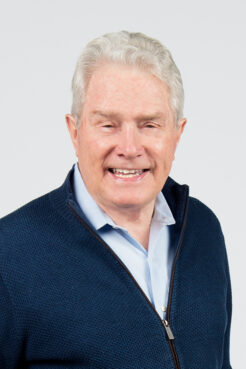
Luis Palau in 2016. Photo by Lauren Natalie Photography, courtesy of the Luis Palau Association
The evangelist whom some called the “Latino Billy Graham” conducted his crusades in English and Spanish and shifted to “festival evangelism” near the turn of the 21st century with outdoor gatherings that were upbeat and edgy.
Palau died March 11 at age 86.
Taking the advice of his sons and younger associates, Palau held free outdoor festivals featuring Christian hip-hop music and athletes, BMX races and skateboarding. While few religious symbols were in sight, the messaging was overtly Christian.
Over five decades, his Oregon-based Luis Palau Association reached an estimated 30 million people in 75 countries and worked with thousands of churches as it held gatherings in cities such as Hong Kong, Chicago, Madrid and Washington.
“Never let the fire of evangelism fade. Stand strong for the Gospel!” Palau said in what was likely his last letter to close friends. “I know I will close my eyes to this world and open them to glory…to the face of my Savior.”
Ole Anthony
The longtime president of Dallas-based Trinity Foundation Inc. was a critic of prosperity gospel televangelists.
Anthony died April 16 at age 82.
His Texas nonprofit helped the homeless, held Bible studies and featured a radio show before Anthony spent three decades investigating televangelists such as Robert Tilton, Benny Hinn and Jan and Paul Crouch. The foundation’s investigation of Tilton’s direct mail operation was highlighted on ABC’s “Primetime Live” broadcast. Tilton’s ministry denied the foundation’s claim that it threw away prayer requests but kept checks from donors.
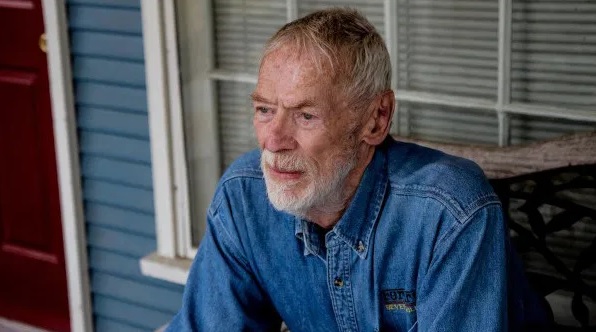
Ole Anthony, who died April 16, 2021, at the age of 82, came to fame after his investigation of televangelist Robert Tilton was featured on ABC News’ “Primetime Live” program. Courtesy photo
“It was awesome,” Anthony told the Dallas Observer in 2006. “The one aspect of the program that everybody remembers is when Tilton crossed over the sleaze line. They remember the prayer requests in the trash. A producer at ABC told me it was the No. 1 topic on talk radio for weeks.”
The Trinity Foundation’s tribute at the time of Anthony’s death noted his “abrasive style” and acknowledged some group members had left due to accusations of “cult-like tactics.” But it added: “Most disagreed and remained, however, and the community he founded survived and evolved.”
Imam Sohaib Nazeer Sultan
The interfaith leader was Princeton University’s Muslim chaplain and the author of the 2004 book “The Koran for Dummies.”
Sultan died on April 16 at age 40 after a diagnosis of a rare form of cancer.
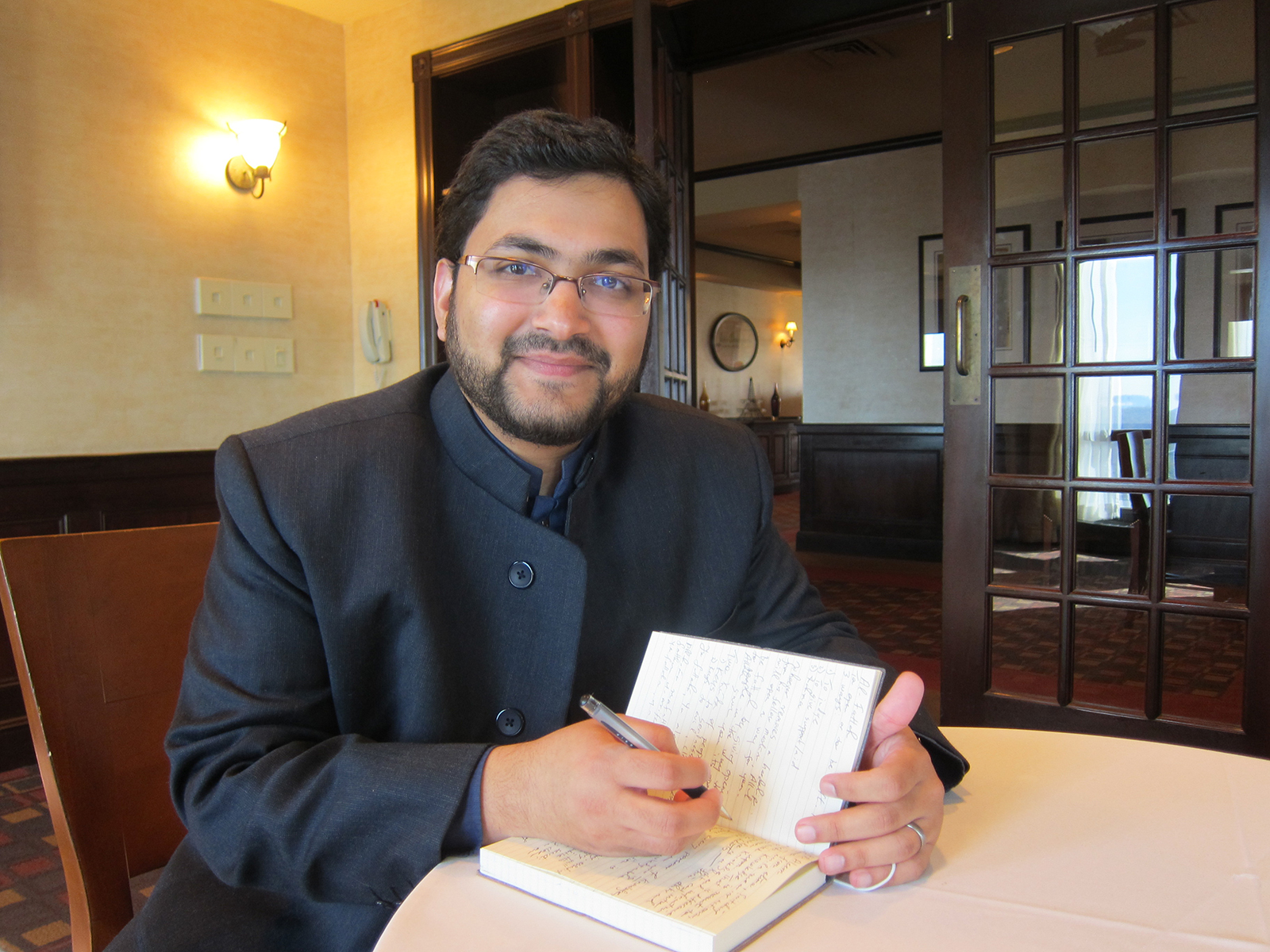
Imam Sohaib Nazeer Sultan died April 16, 2021, at age 40. Courtesy photo
Known for his faith-inspired compassionate view of life, he was a public lecturer and writer on Islam, Interfaith America noted. His interfaith work aimed to build bridges between Muslims and people of other faiths.
Prior to his Princeton role, Sultan was the first Muslim chaplain at Trinity College in Hartford, Connecticut.
In a YouTube conversation with Vineet Chander, Princeton’s Hindu chaplain, Sultan spoke about the role of rahmat, or mercy or grace, in accepting death: “Nobody wants to leave this world, there are too many attachments. … Whether you’re 40, or 80, or 120, you never want to leave, but at some point, you have to leave. This is the way that God has decreed the way the world to be.”
Richard Rubenstein
The radical Jewish thinker questioned the existence of God and wrote the seminal 1966 book “After Auschwitz.”
Rubenstein died May 16 at age 97.
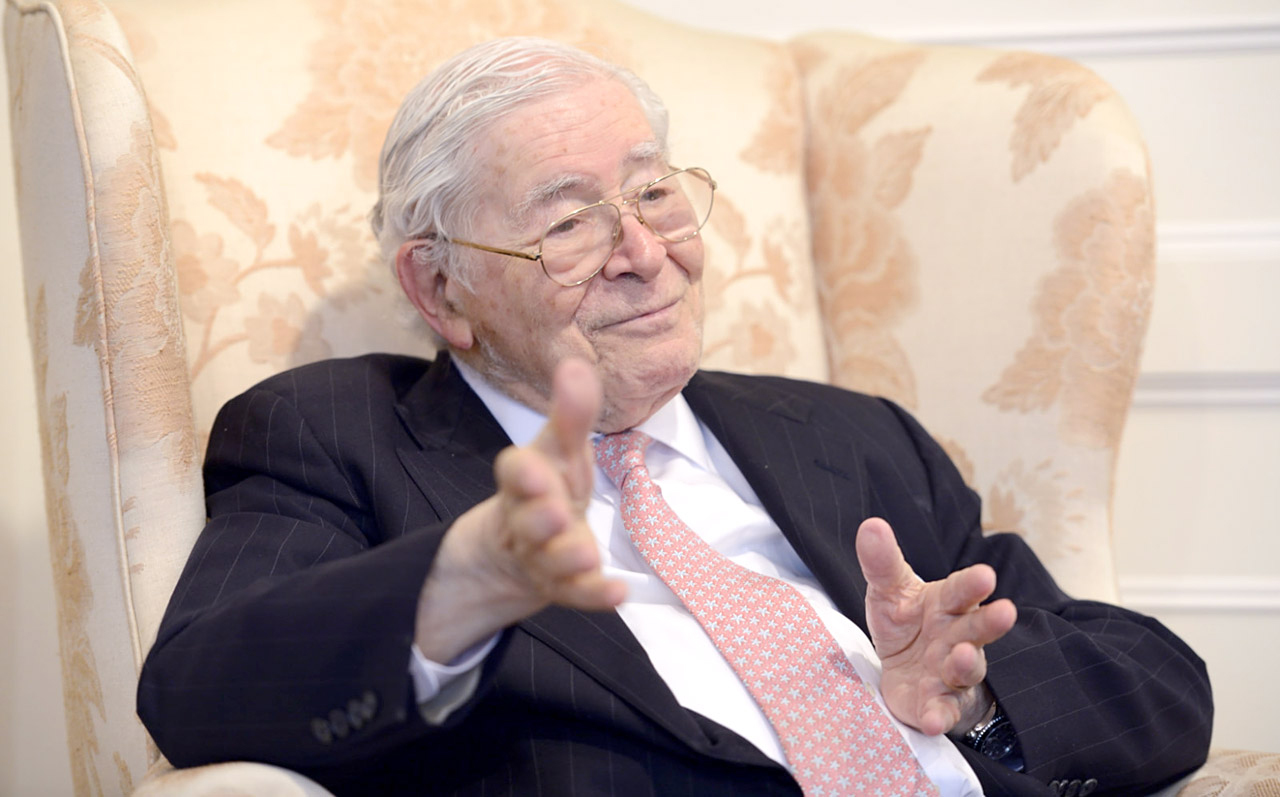
Richard Rubenstein speaks at the University of Bridgeport in November 2017. Photo via University of Bridgeport
Some of his theological views were shaped by the death of his infant son on the eve of Yom Kippur in 1950. He left his role as a Conservative rabbi and became a Florida State University professor, then president of the University of Bridgeport and ultimately one of the intellectual fathers of neoconservativism.
The leader of the “death of God” movement divided history before and after the creation of the Nazis’ largest death camp in World War II.
“Although Jewish history is replete with disaster, none has been so radical in its total import as the Holocaust,” he wrote in “After Auschwitz,” according to The Washington Post. “Our images of God, man, and the moral order have been permanently impaired. No Jewish theology will possess even a remote degree of relevance to contemporary Jewish life if it ignores the question of God and the death camps. That is the question for Jewish theology in our times.”
The Rev. Donald W. Shriver Jr.
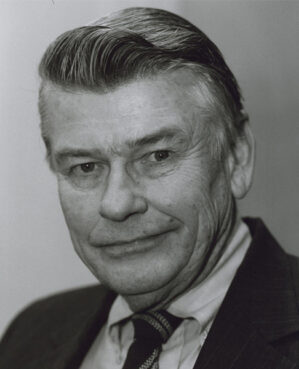
The Rev. Donald W. Shriver Jr. died July 28, 2021. Photo courtesy of Union Theological Seminary
The Presbyterian minister and Christian ethicist wrote widely to encourage white Americans to face and repent of their racist past.
Shriver died July 28 at 93.
The president of New York’s Union Theological Seminary from 1975 to 1991, he hired Black clergy and scholars such as Cornel West, James Forbes and James Melvin Washington as well as feminist theologians such as Phyllis Trible and Beverly Wildung Harrison.
His most celebrated 2005 book, “Honest Patriots: Loving a Country Enough to Remember its Misdeeds,” compared the work of public repentance in South Africa and Germany with that in the U.S.
American culture will never be truly reformed, Shriver wrote, “unless the past we ought to mourn is mourned, in fact, in public, and in the context of concrete gestures and measures that put the past behind us in our very act of confronting it.”
Bishop John Shelby Spong
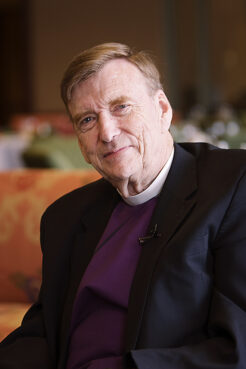
Bishop John Shelby Spong in 2006. Photo by Scott Griessel/Wikipedia/Creative Commons
The progressive theologian was the first to ordain an openly gay male priest in the Episcopal Church, in 1989.
Spong died on Sept. 12 at age 90.
He eventually ordained three dozen LGBTQ clergy in the Episcopal Diocese of Newark, New Jersey, and made sure any diocesan church seeking a new priest interview at least one woman candidate.
The author of more than a dozen books, including “Living in Sin: A Bishop Rethinks Human Sexuality,” he would draw hundreds of people during his book tours. He defended his rejection of miracles and denial of Christian doctrines such as the resurrection of Jesus and the virgin birth.
“We’re space-age people,” he told Religion News Service in 2013. “All I’m saying is that the world the Christian church was born in is not the world we live in, and if you confine it to the world it was born in, Christianity will die, because that world is dying.”
David Yonggi Cho
The founder of one of the world’s largest megachurches, Yoido Full Gospel Church in South Korea, led the Pentecostal congregation that grew to have hundreds of thousands of members.
Cho died Sept. 14 at 85.
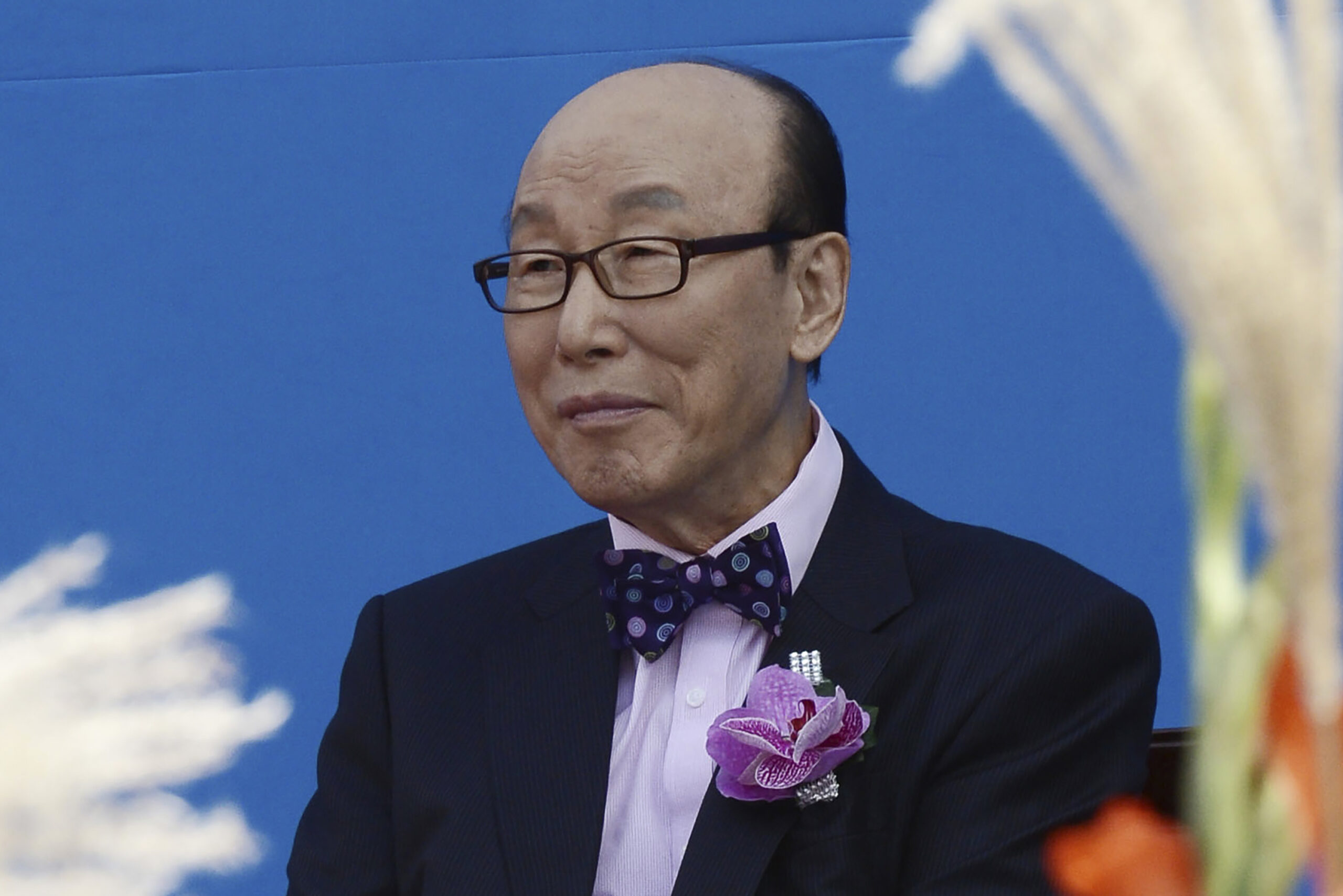
In this Oct. 11, 2013, file photo, the Rev. David Yonggi Cho attends the Grand Prayer Rally for Peace of the Korean Peninsula and for the Hope of the World Church at the World Cup Stadium in Seoul, South Korea. Cho died Sept. 14, 2021. He was 85. (Hong Chan-sun/Newsis via AP)
He initially held services in a tent in 1958 and moved to a 10,000-seat sanctuary in 1993, according to Christianity Today. The church, which is affiliated with the Assemblies of God, eventually claimed the title of the world’s largest church, according to Guinness World Records, with close to 800,000 members. At the time of his death, Yoidi Full Gospel remained the largest Protestant church in South Korea, with 500 missionaries abroad and 400 evangelists and pastors in the country, The Associated Press reported.
Cho retired as pastor of the Yoido Full Gospel Church in 2007 and was convicted seven years later for embezzling millions from the church. He received a suspended sentence and, still a beloved figure, was named pastor emeritus by the church.
“All I did was offer my life just like the boy who gave the five loaves and two fish,” Cho stated in a greeting on his church’s website. “I simply held on to the dreams that the Lord gave me, and it was He who grew Yoido Full Gospel Church to 750,000 members to become the World’s largest church. This is entirely a grace given to us by God.”
The Rev. Timothy Stewart
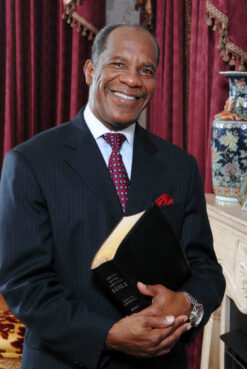
The Rev. Timothy Stewart. Courtesy photo
The president of the Progressive National Baptist Convention was the first top leader of the historically Black denomination from its international region.
Stewart died Sept. 17 at the age of 64.
He had served three years of his four-year term and presided over the August virtual annual session of the denomination that was home to the Rev. Martin Luther King Jr. Stewart had been pastor of Bethel Baptist Church in his native Nassau, Bahamas, since he was 25. He also was a civic leader, serving as a board member of the Bahamas Development Bank, a member of the Bahamas Juvenile Panel and a chaplain to the country’s House of Assembly.
He led the PNBC’s fundraising efforts when Hurricane Dorian hit the Bahamas in 2019 and supplies were needed for its devastated islands.
In the storm’s aftermath, Stewart told RNS he did not feel his faith was being tested.
“I believe that this tragedy gives me an opportunity to affirm my faith and to apply my faith,” he told RNS. “In spite and in light of what has been a very tragic, very horrendous situation, we are forced to still see the grace of God.”
Albert J. Raboteau
The American religion historian helped students and journalists enhance their knowledge of African American religion.
Raboteau died Sept. 18 at 78.
He was a member of Princeton University’s faculty since the 1980s, earning emeritus status in 2013, and chaired the university’s religion department from 1987 to 1992.
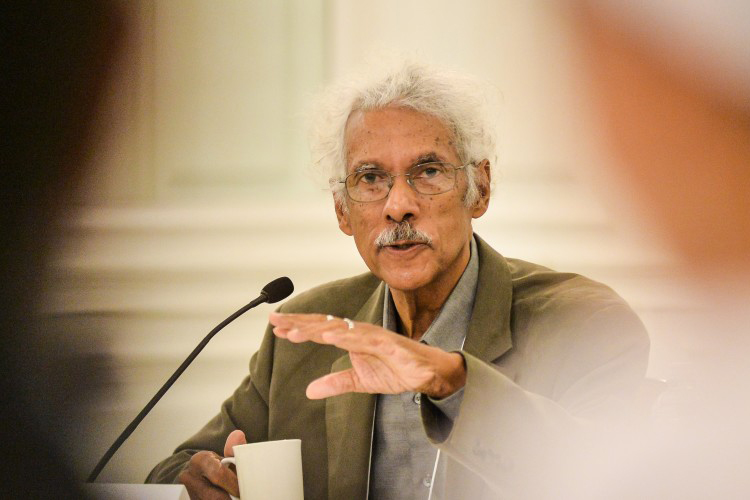
Albert J. Raboteau. Photo courtesy of Faith Angle Forum
Known for his mentoring of students and for writing his 1978 book “Slave Religion: The ‘Invisible Institution’ in the Antebellum South,” he also spoke to journalists about contemporary religious issues. He said cross-racial gatherings like Bible studies and meal sharing could be more important than apologies about racism by predominantly white denominations.
“What we are as a nation is a collection of disparate stories, an ever exfoliating set of separate stories and what we need to bind us together is to be able to hear the stories of others in face-to-face encounter,” he said at the 2015 Faith Angle Forum, where he talked to reporters about “Forgiveness and the African American Church Experience.”
In 2016, Raboteau published the book “American Prophets: Seven Religious Radicals and Their Struggle for Social and Political Justice,” which included chapters on Rabbi Abraham Joshua Heschel, the Rev. Martin Luther King Jr. and Fannie Lou Hamer. The book was based on his “Religious Radicals” seminar for Princeton undergraduate students.
Beverly Carroll
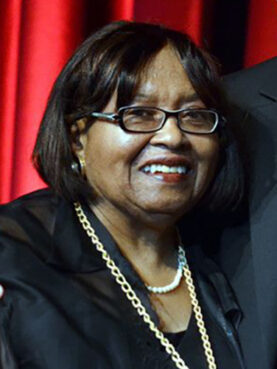
Beverly Carroll. Photo via Black Catholic Messenger
The founding director of the U.S. Conference of Catholic Bishops’ Secretariat for African American Catholics started the organization in 1988 and led it for two decades.
Carroll died Nov. 13 at age 75.
Early in her secretariat role, Carroll predicted Black and Hispanic Catholics would become “the dominant cultures of the 21st century in the American Catholic Church,” the UPI reported.
She advocated for more Black priests and encouraged the presence of more African American lay people in the front offices of the nation’s dioceses, reported the Black Catholic Messenger.
In 2009, she was named the assistant director in the USCCB’s Secretariat for Cultural Diversity and advised the bishops on evangelization in African American communities. According to the USCCB, she received the first Servant of Christ Award-Lifetime Achievement Honors from the National Black Catholic Congress in 2012.
Phil Saviano
The clergy sex abuse survivor was a whistleblower who played a prominent role in bringing to light sexual abuse by U.S. Roman Catholic priests.
Saviano died Nov. 28 at 69.
His story was featured in “Spotlight,” the 2015 film that depicted the investigation by The Boston Globe of a cover-up by scores of priests who had molested children. In the wake of the scandal, Cardinal Bernard Law, the prelate in Boston, resigned and the church made settlements with hundreds of victims.
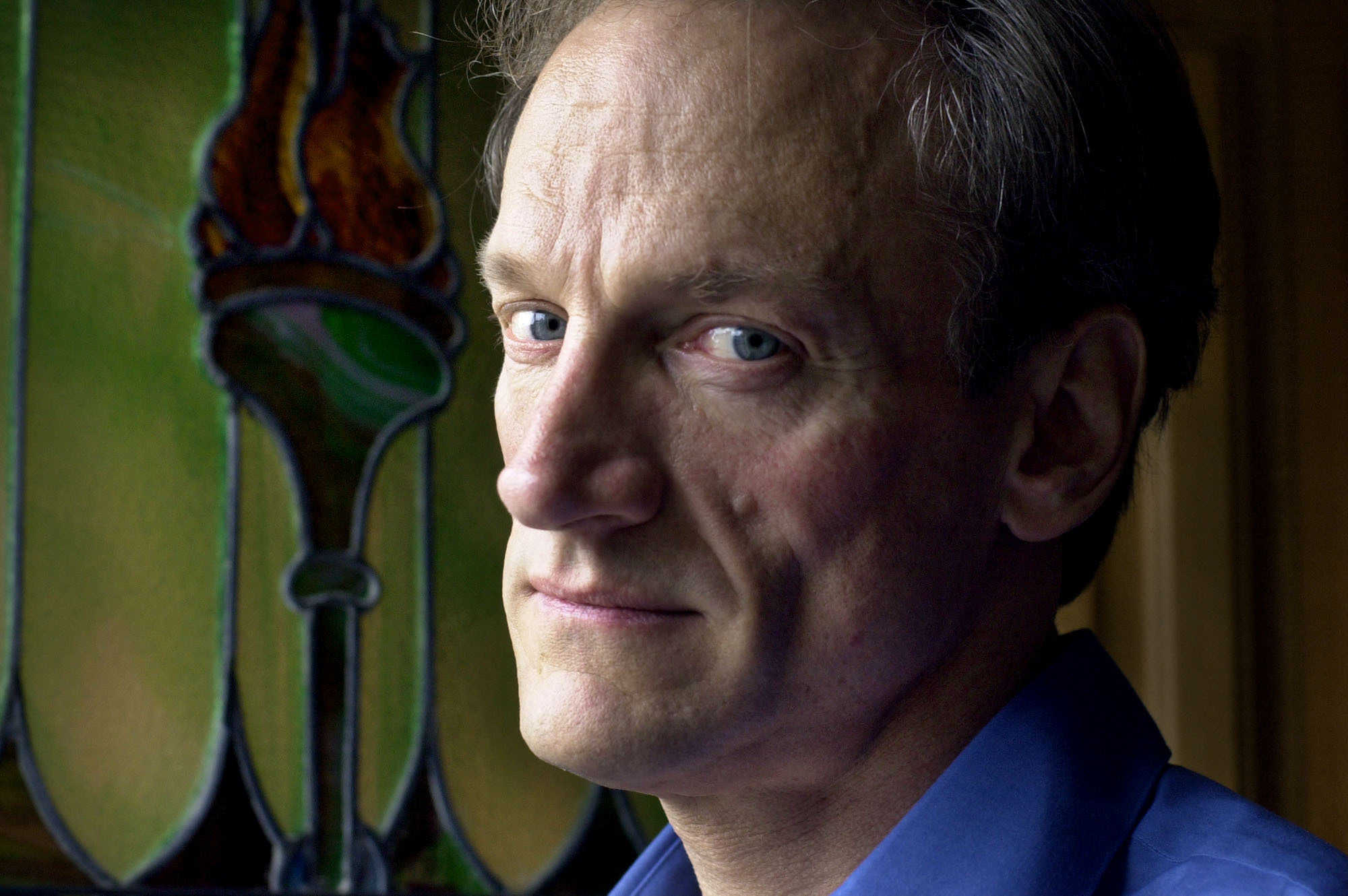
In this Feb. 15, 2002, file photograph, Phil Saviano, regional coordinator for the Survivors Network for those Abused by Priests, poses for a portrait in his Boston home. Saviano, a clergy sex abuse survivor and whistleblower who played a pivotal role in exposing decades of predatory assaults by Roman Catholic priests in the United States, died Nov. 28, 2021. He was 69. (AP Photo/Steven Senne, File)
“My gift to the world was not being afraid to speak out,” Saviano told The Associated Press in mid-November.
Though movie watchers may have learned relatively recently of Saviano, who is pictured on his website wearing a “Recovering Catholic” T-shirt, he broke his silence in 1992 and described how he was sexually assaulted by his confessor and priest, David Holley of Worcester, Massachusetts. Holley, who died in prison in New Mexico in 2008, received a 275-year sentence for molesting eight boys.
According to Saviano’s website, after winning a settlement that did not restrict him from speaking freely, he established the New England chapter of Survivors Network of those Abused by Priests.
Saviano also expanded SNAP’s website, which became a communication tool for survivors and reporters, and he served on the organization’s board.
Marcus Lamb
The president and CEO of Daystar Television Network was known for his outspoken opposition to COVID-19 vaccines.
Lamb died Nov. 30 at 64 after contracting the virus.
He, along with his wife, Joni Lamb, was known for a commitment to addressing racism.
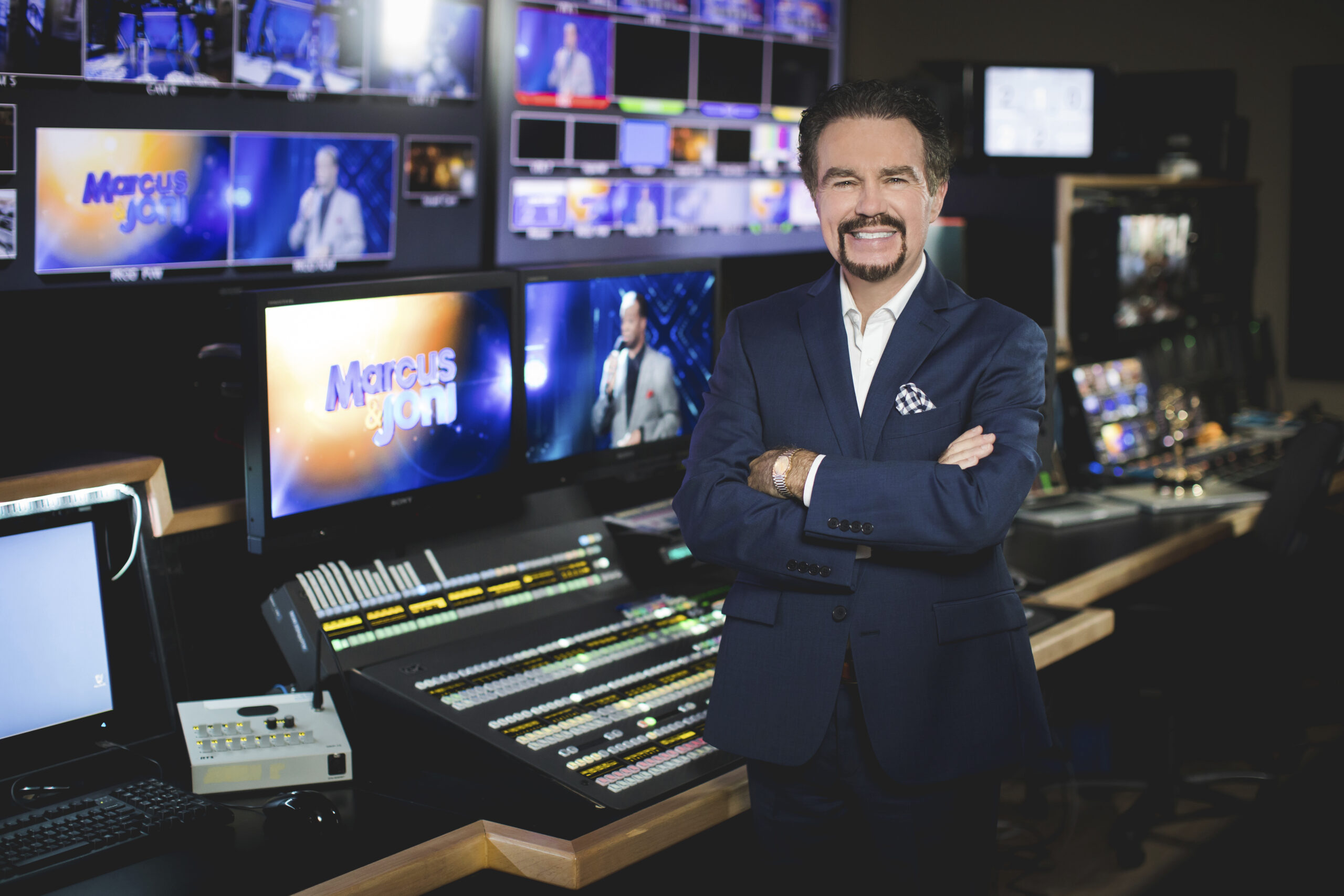
In this image provided by Daystar, Daystar CEO Marcus Lamb poses. Lamb, the CEO and founder of the conservative Christian Daystar Television Network, died at age 64. (Daystar via AP)
“Joni and I remain committed to standing against the evil sin of racism,” he wrote in a summer 2020 Facebook post during a time of Black Lives Matter protests. “The murder of George Floyd and the pain that followed have been heart breaking and I know it also breaks the heart of God.”
Lamb defended his network’s broadcast of a series of programs featuring vaccine skeptics and proponents of alternative treatments they considered for dealing with COVID-19.
“Why are we doing this?” Marcus Lamb said. “Because God loves people and we love people.”
Thomas Quigley
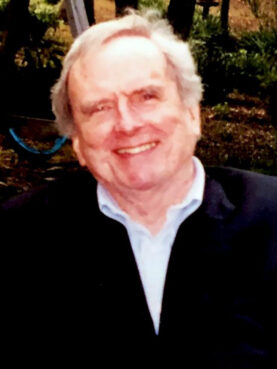
Thomas Quigley died Dec. 11, 2021, at age 91. Photo courtesy of the Gerlach family
The four-decade staffer at the U.S. Conference of Catholic Bishops, mostly in its foreign policy office, was considered one of the leading experts on the Catholic Church in Latin America.
Quigley died Dec. 11 at 91.
Hired in 1962, Quigley was the longest-serving staffer — at 45 years — when he accepted a buyout during restructuring of the bishops’ conference in 2007, Catholic News Service reported.
Early in his career there he oversaw a program similar to the Peace Corps called Papal Volunteers.
He met St. Oscar Romero in 1977 for the first time and was last with him on the day before the Salvadoran archbishop was killed while celebrating Mass on March 24, 1980, CNS reported. Quigley authored the introduction to the English translation of Romero’s diaries of his life as San Salvador archbishop.
Later in Quigley’s career, he was an adviser on East Asian affairs, concentrating on human rights and religious freedom.
Retired Archbishop Desmond Tutu
The man who became synonymous with South Africa’s nonviolent struggle against apartheid earned the Nobel Peace Prize for railing against the racially oppressive regime that stifled his country.
Tutu died Sunday (Dec. 26) at 90.
The spiritual leader of millions of Black and white South Africans headed his country’s Truth and Reconciliation Commission and withstood critics who rejected his determination to protest racial segregation and to seek nonviolent solutions.
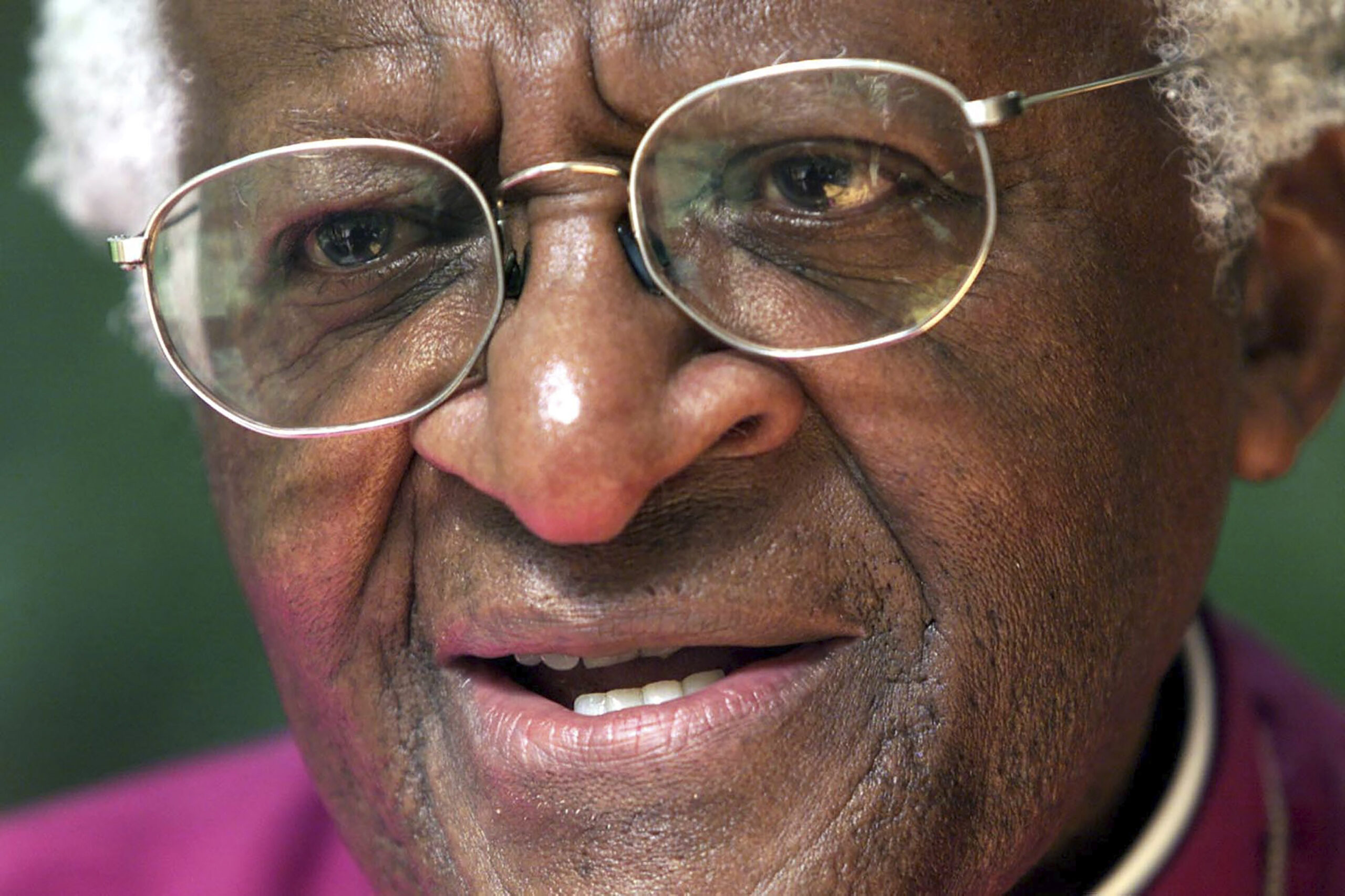
Anglican Archbishop Emeritus Desmond Tutu speaks during an interview with The Associated Press in Pretoria, South Africa, March 21, 2003. Tutu, South Africa’s Nobel Peace Prize-winning activist for racial justice and LGBT rights and retired Anglican archbishop of Cape Town, has died at the age of 90, South African President Cyril Ramaphosa has announced. (AP Photo/Themba Hadebe, File)
His honors included the Presidential Medal of Freedom from then-President Barack Obama in 2009 and the Templeton Prize, a top award in the field of religion and spirituality, in 2013.
Later in life, the first Black Anglican bishop of Johannesburg continued to preach about the need for forgiveness and reconciliation, extending his message about justice to advocate for poor people, support Palestinians, and speak out for gay rights.
“All, all are God’s children and none, none is ever to be dismissed as rubbish,” he once told a “God and Us” class he taught as a visiting professor at Emory University’s Candler School of Theology. “And that’s why you have to be so passionate in your opposition to injustice of any kind.”
RELATED: 10 religious influencers who died in the decade: 2010-2019





